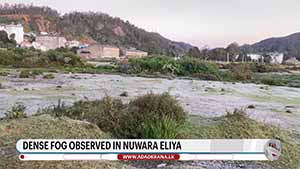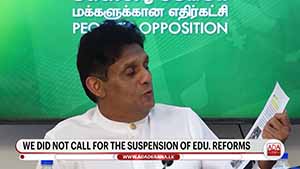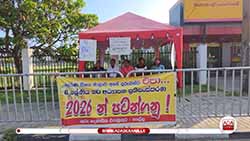New Zealand Government ‘reassures’ Sri Lankan consumers
August 15, 2013 04:46 pm
Following the controversy over traces of dangerous fertiliser chemical dicyandiamide (DCD) found in milk powder, the New Zealand Government today reassured Sri Lankan consumers that food safety is a “priority” for all food produced in New Zealand for export to Sri Lanka.
The New Zealand Government said that dairy products the country exported to Sri Lanka must conform to New Zealand’s domestic requirements and any additional requirements put in place by the Sri Lankan government.
The New Zealand Ministry for Primary Industries (New Zealand’s lead food safety agency) monitors this requirement, a statement issued by the New Zealand High Commission in New Delhi said.
“While DCD does not pose a risk to human health at levels earlier detected in New Zealand milk products, DCD is no longer used on New Zealand farms. Exports direct from New Zealand to Sri Lanka from June 2013 have met strict rules regarding DCD. No dairy products have been withdrawn in New Zealand due to DCD.”
New Zealand-based dairy giant Fonterra Co-operative Ltd had withdrawn milk powder under orders from the Sri Lankan authorities for showing traces of the toxic agricultural chemical dicyandiamide (DCD), although it disputed the accuracy of the testing.
The Sri Lankan recall follows last week’s withdrawal by Fonterra and several of its customers of infant formula, sports drinks, and animal feed in nine countries because of fears of contamination of a whey ingredient with a bacteria that can cause botulism.
New Zealand’s Ministry for Primary Industries also reassured Sri Lankan consumers that no whey protein concentrate (WPC) potentially contaminated with the bacteria C. botulinum have been exported from New Zealand to Sri Lanka.
“The New Zealand Government is committed to working with the Sri Lankan Government to ensure the safety of all consumers of New Zealand dairy products,” the statement said.
The New Zealand Government has committed NZ$1.8 million over three years to a dairy development in the Wanni District and is looking at further opportunities to promote cooperation between our dairy communities, it said.
The New Zealand Government said that dairy products the country exported to Sri Lanka must conform to New Zealand’s domestic requirements and any additional requirements put in place by the Sri Lankan government.
The New Zealand Ministry for Primary Industries (New Zealand’s lead food safety agency) monitors this requirement, a statement issued by the New Zealand High Commission in New Delhi said.
“While DCD does not pose a risk to human health at levels earlier detected in New Zealand milk products, DCD is no longer used on New Zealand farms. Exports direct from New Zealand to Sri Lanka from June 2013 have met strict rules regarding DCD. No dairy products have been withdrawn in New Zealand due to DCD.”
New Zealand-based dairy giant Fonterra Co-operative Ltd had withdrawn milk powder under orders from the Sri Lankan authorities for showing traces of the toxic agricultural chemical dicyandiamide (DCD), although it disputed the accuracy of the testing.
The Sri Lankan recall follows last week’s withdrawal by Fonterra and several of its customers of infant formula, sports drinks, and animal feed in nine countries because of fears of contamination of a whey ingredient with a bacteria that can cause botulism.
New Zealand’s Ministry for Primary Industries also reassured Sri Lankan consumers that no whey protein concentrate (WPC) potentially contaminated with the bacteria C. botulinum have been exported from New Zealand to Sri Lanka.
“The New Zealand Government is committed to working with the Sri Lankan Government to ensure the safety of all consumers of New Zealand dairy products,” the statement said.
The New Zealand Government has committed NZ$1.8 million over three years to a dairy development in the Wanni District and is looking at further opportunities to promote cooperation between our dairy communities, it said.












